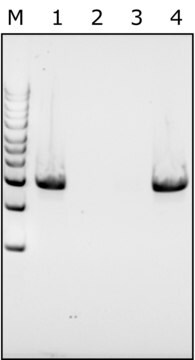M6500
Cysteamine hydrochloride
powder or crystals, ≥98% (titration)
Synonym(s):
β-Mercaptoethylamine hydrochloride, 2-Aminoethanethiol hydrochloride, 2-Mercaptoethylamine hydrochloride, Decarboxycysteine hydrochloride, Thioethanolamine hydrochloride
About This Item
Recommended Products
product name
Cysteamine hydrochloride, ≥98% (titration)
biological source
synthetic (organic)
Assay
≥98% (titration)
form
powder or crystals
mp
67-71 °C
solubility
water: 50 mg/mL, clear, colorless to very faintly yellow
storage temp.
2-8°C
SMILES string
Cl[H].NCCS
InChI
1S/C2H7NS.ClH/c3-1-2-4;/h4H,1-3H2;1H
InChI key
OGMADIBCHLQMIP-UHFFFAOYSA-N
Looking for similar products? Visit Product Comparison Guide
Biochem/physiol Actions
Signal Word
Warning
Hazard Statements
Precautionary Statements
Hazard Classifications
Acute Tox. 4 Oral - Eye Irrit. 2 - Skin Sens. 1 - STOT SE 3
Target Organs
Respiratory system
Storage Class Code
11 - Combustible Solids
WGK
WGK 3
Flash Point(F)
Not applicable
Flash Point(C)
Not applicable
Personal Protective Equipment
Certificates of Analysis (COA)
Search for Certificates of Analysis (COA) by entering the products Lot/Batch Number. Lot and Batch Numbers can be found on a product’s label following the words ‘Lot’ or ‘Batch’.
Already Own This Product?
Find documentation for the products that you have recently purchased in the Document Library.
Customers Also Viewed
Our team of scientists has experience in all areas of research including Life Science, Material Science, Chemical Synthesis, Chromatography, Analytical and many others.
Contact Technical Service










